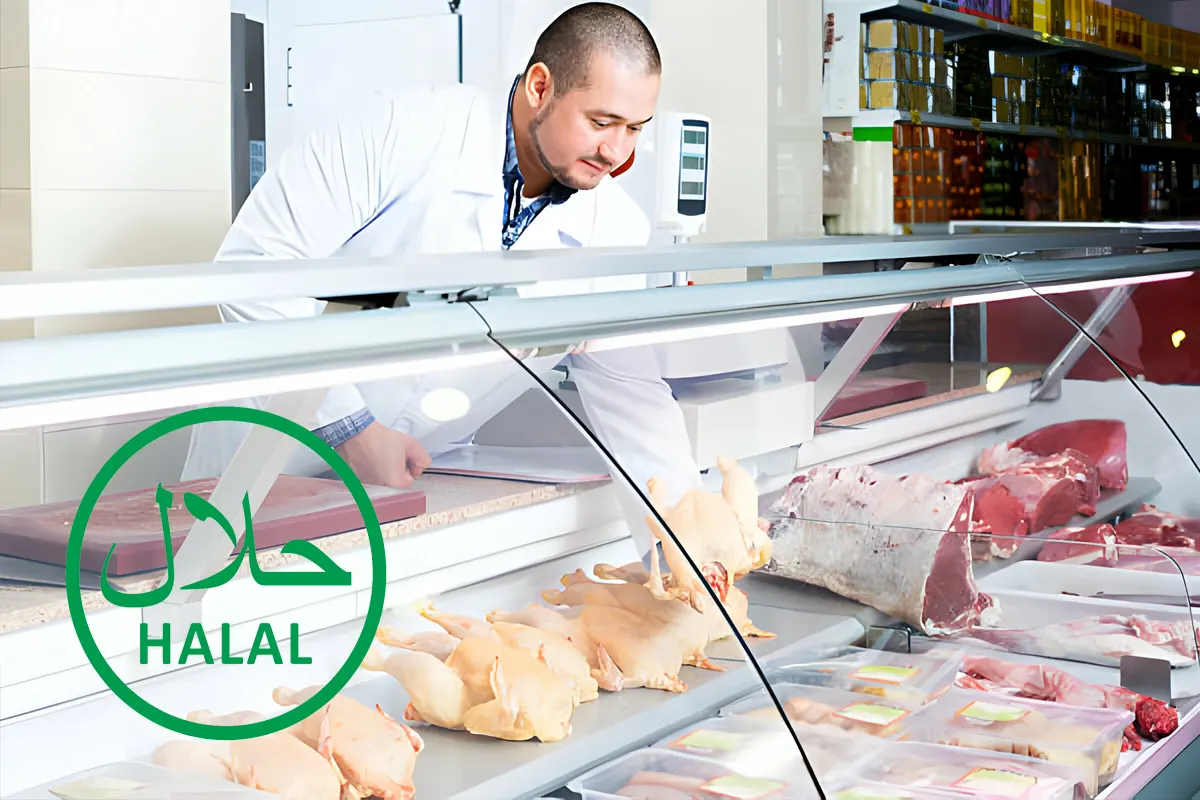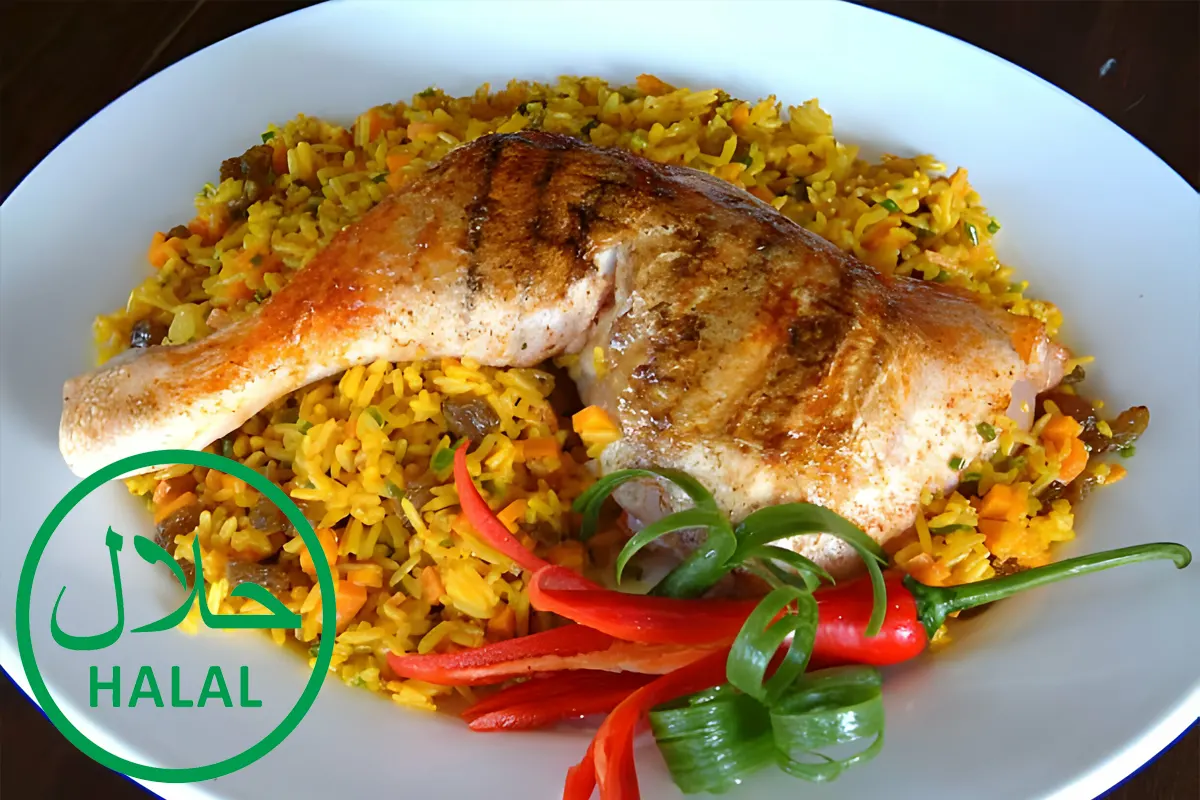Halal Chicken: A Comprehensive Guide to Understanding and Cooking with Halal Poultry
Introduction to Halal Chicken
Halal chicken plays a crucial role in the culinary traditions of many cultures, symbolizing more than a dietary choice. It embodies the adherence to Islamic dietary laws, deeply rooted in religious and ethical practices. In this comprehensive guide, we explore the world of halal chicken, delving into its religious significance, health benefits, and culinary versatility. Whether you are a devout follower of Islamic dietary laws or a curious food enthusiast, this article will unfold the myriad aspects of halal chicken, providing insights into its preparation, global impact, and cultural importance.
The Basics of Halal Certification
Understanding Halal Standards The Arabic term ‘Halal,’ meaning ‘permissible,’ describes what Islamic law allows. In food, it signifies adherence to dietary principles outlined in the Quran. Halal chicken must undergo processing and preparation according to these principles, ensuring freedom from any prohibited components or substances in Islam.
The Halal Certification Process Islamic authorities oversee the rigorous Halal certification process. This process involves thorough inspections and regular audits of slaughterhouses and processing facilities, ensuring compliance with halal standards. This certification plays a crucial role in building consumer trust and facilitating global trade in halal products.
Significance of Halal Label The halal label on chicken or any food product marks quality and adherence to Islamic dietary laws. It assures Muslim consumers of the food’s alignment with their religious and ethical beliefs. In many countries, the halal label signifies not just a religious symbol but also a sign of hygiene and ethical processing.
The Halal Slaughtering Process
Islamic Slaughtering Rituals (Dhabiha) The halal method of slaughtering, known as Dhabiha, swiftly and humanely cuts the chicken’s throat while reciting a prayer to God. This method aims to minimize the animal’s suffering. The Dhabiha process is more than a ritual; it embodies Islamic principles of respect for life and kindness to animals.
Ethical and Humane Practices Halal slaughtering emphasizes animal welfare. This process ensures the well-treatment of animals before slaughter and the performance of the act with precision and compassion. These ethical practices align with the growing global concern for animal welfare in food production.
The Role of the Slaughterer In halal butchery, the slaughterer plays a crucial role. They must be a sane, adult Muslim who fully understands the religious significance of the process. Their intention (niyyah) to perform the slaughter in God’s name is vital for making the meat halal.
Health and Nutritional Benefits

Comparison with Non-Halal Chicken Many consider halal chicken healthier due to the thorough blood drainage from the meat, reducing the risk of bacterial growth and spoilage. This aspect of halal preparation aligns with modern health standards and enhances the meat’s freshness and quality.
Nutritional Profile of Halal Chicken Like all chicken, halal variants are rich in essential nutrients, including high-quality protein, vitamins B6 and B12, niacin, and minerals like phosphorus and selenium. These nutrients play vital roles in various bodily functions, from muscle building to maintaining a healthy nervous system.
Impact on Health and Wellness Incorporating halal chicken into your diet contributes to overall health and wellness. For those interested in diverse, nutritious recipes, our Pastina Recipe: A Culinary Delight or the Italian Hangover Cake can adapt to include halal chicken for a richer flavor.
Halal Chicken in the Global Market
Popularity and Demand The global demand for halal chicken is rising, not just in predominantly Muslim countries but also in Western nations. This surge in popularity stems from the growing Muslim population and increasing awareness of halal food’s health benefits.
Halal Chicken in Non-Muslim Countries In non-Muslim countries, halal chicken gains traction among health-conscious consumers. Supermarkets and restaurants are expanding their offerings to cater to this diverse clientele, making halal chicken more accessible to a broader audience.
Challenges in the Halal Poultry Industry The halal poultry industry faces unique challenges, such as ensuring consistent halal compliance across different regions and meeting high demand without compromising on quality. Addressing these challenges is crucial for maintaining consumer trust and industry integrity.
Cooking with Halal Chicken
Handling and Storage Tips Proper handling and storage are crucial for maintaining the quality of halal chicken. Safe temperatures should be maintained to prevent spoilage and bacterial growth. Always ensure thorough cooking of chicken to guarantee food safety.
Marinating and Seasoning Techniques Various marinades and seasonings enhance halal chicken’s natural flavor. For creative marinade ideas, our Chicken Crack Seasoning article offers adaptations suitable for a halal chicken recipe.
Diverse Recipes and Cooking Methods Halal chicken’s versatility allows its use in a plethora of recipes. From traditional stews and curries to modern fusion dishes, the options are limitless. Explore recipes like our Olive Loaf or Captain Rodney’s Dip, which can easily incorporate halal chicken for a unique culinary experience.
Ethical and Environmental Considerations
Animal Welfare in Halal Practices Halal slaughtering methods focus not only on compliance with religious norms but also on the ethical treatment of animals. These practices align with a growing global awareness of animal welfare, leading many consumers to choose halal chicken for these ethical considerations.
Environmental Impact The halal poultry industry is increasingly adopting sustainable farming practices. These practices include responsible feeding, minimal use of antibiotics, and measures to reduce the environmental footprint, aligning with broader sustainability goals in food production.
Sustainable Farming Practices Sustainable farming plays a crucial role in the future of halal poultry. By adopting eco-friendly practices and focusing on animal welfare, halal chicken producers can ensure a sustainable and ethical supply chain.
Legal and Regulatory Framework
Global Halal Standards and Regulations A set of global standards and regulations governs the halal poultry industry. While these standards vary from country to country, they generally focus on ensuring that the slaughtering process and the final product adhere to Islamic law.
Halal Certification Bodies Halal certification bodies maintain these standards. They conduct regular audits and provide certification, essential for building consumer trust and for producers looking to enter global markets.
Compliance and Enforcement Compliance with halal standards is not just a religious obligation but also a legal requirement in many countries. Strict enforcement ensures the integrity of halal products and protects consumer rights.
Cultural Significance and Traditions
Halal Chicken in Islamic Festivals Halal chicken serves as a staple in many Islamic festivals and celebrations. Its preparation and consumption during these times hold significant cultural and religious value.
Traditional Dishes and Culinary Uses Halal chicken forms the basis of countless traditional dishes, from the rich flavors of Middle Eastern cuisines to South Asian spices. These recipes offer a taste of the culture and reflect the diverse culinary traditions of the Muslim world.
Cultural Appreciation and Sensitivity Understanding and respecting the cultural significance of halal chicken is key to global culinary appreciation. It fosters a sense of inclusivity and respect for Muslim dietary practices.
The Future of Halal Chicken
Innovations in Halal Poultry Farming As the demand for halal chicken grows, so does the need for innovation in farming practices. These innovations include advancements in ethical slaughtering techniques and sustainable farming.
Trends and Future Prospects The halal poultry market is poised for continued growth. With rising consumer awareness and demand for ethical and healthy food choices, halal chicken will likely see increased global popularity.
The Growing Halal Market The expanding global Muslim population and the rising trend of ethical eating habits indicate a bright future for the halal chicken market. This growth presents opportunities for innovation and expansion in the halal food sector.
FAQs about Halal Chicken
Q1: What makes chicken halal?
A1: Chicken becomes halal when it is slaughtered according to Islamic law, which includes reciting a prayer, swiftly and humanely cutting the throat, and draining the blood. The slaughter must be performed by a sane adult Muslim who understands the religious significance of the process.
Q2: How does halal slaughtering differ from conventional methods?
A2: Halal slaughtering, known as Dhabiha, requires reciting a prayer and making a swift, humane cut to the throat to minimize animal suffering. Unlike some conventional methods, halal slaughter does not allow stunning the animal before the cut and mandates complete blood drainage.
Q3: Is halal chicken healthier than non-halal chicken?
A3: Many consider halal chicken healthier due to the thorough drainage of blood, which can reduce the risk of bacterial growth and spoilage. The ethical treatment of animals in halal practices also contributes to the quality of the meat.
Q4: Can non-Muslims eat halal chicken?
A4: Yes, non-Muslims can eat halal chicken. Many people who are not Muslim choose halal chicken due to its perceived health benefits, ethical slaughtering practices, and quality.
Q5: Where can I buy halal chicken?
A5: You can buy halal chicken at Islamic butcheries, many supermarkets, and stores specializing in halal foods. It’s also increasingly available in mainstream grocery stores in diverse areas.
Q6: Are there specific recipes for cooking halal chicken?
A6: You can use halal chicken in any chicken recipe. Its versatile nature makes it suitable for a wide range of dishes, from traditional stews and curries to modern fusion recipes. Check out our Chicken Crack Seasoning for some unique recipe ideas.
Q7: How should I store halal chicken?
A7: Store halal chicken as you would any fresh poultry. Keep it refrigerated or frozen, and ensure it’s cooked thoroughly to an internal temperature of 165°F (74°C) for safety.
Conclusion
Halal chicken represents much more than a dietary preference; it reflects cultural traditions, ethical considerations, and health-conscious choices. Through this guide, we have explored the various facets of halal chicken, from its preparation and nutritional benefits to its cultural significance and global impact. As the world becomes increasingly interconnected, understanding and appreciating the role of halal chicken in diverse cuisines and cultures becomes more important. Embracing the principles of halal not only caters to dietary needs but also promotes ethical and sustainable practices in the food industry. By recognizing and respecting these practices, we contribute to a more inclusive and diverse culinary world.

